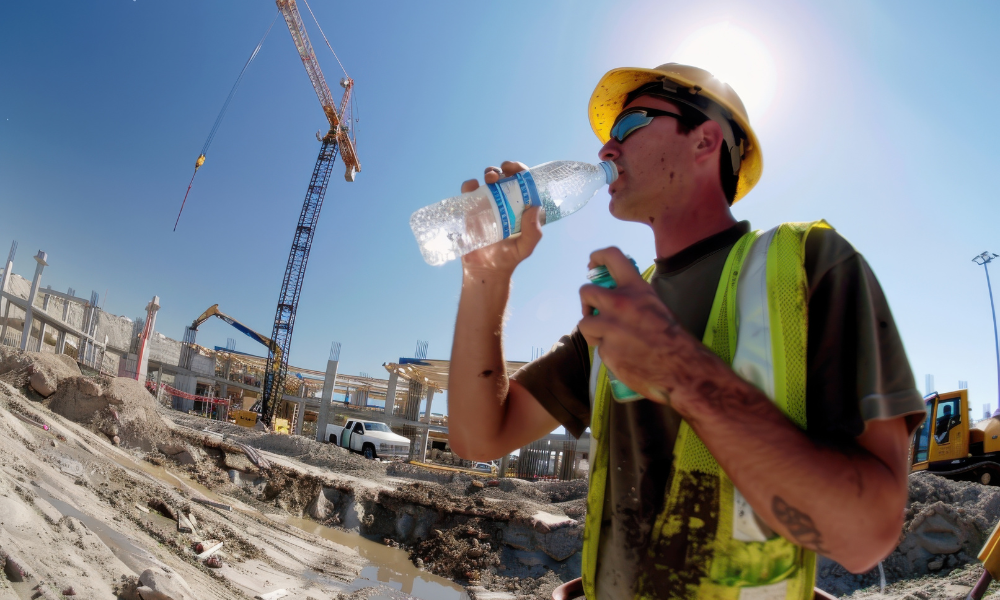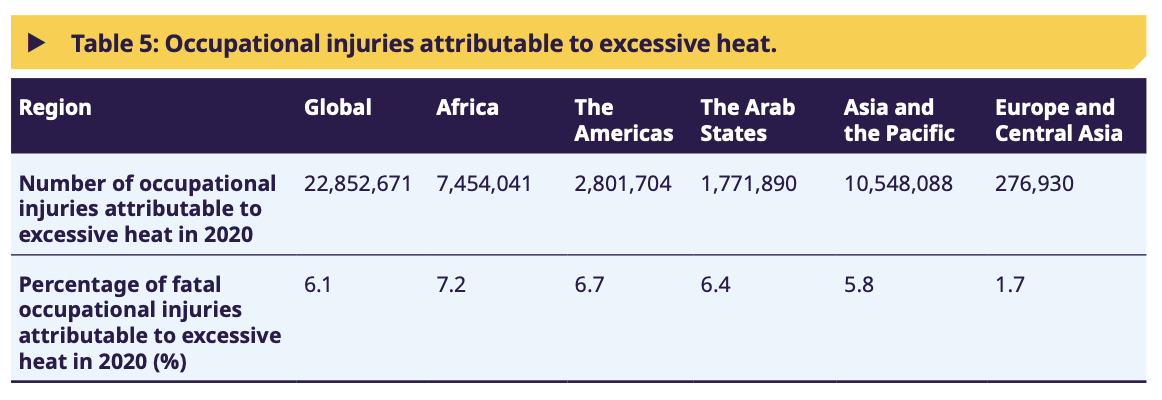
Florida employers failing to report heat-related fatalities to OSHA, according to new investigation

Florida's extreme heat is killing workers, but many of their deaths go unreported to authorities, according to an investigation by The Tampa Bay Times.
An analysis of medical examiner records, law enforcement documents, and interviews with family members has revealed that Florida companies have failed to report at least 19 heat-related fatalities to the U.S. Occupational Safety and Health Administration (OSHA).
Jonathan Baudilio Ramirez Salazar, a 31-year-old from Guatemala, was among the uncounted victims reported by the Times.
On his second day working for TruScapes Industries Inc., he collapsed from heatstroke after spending hours working outside in the sweltering 92-degree heat.
His coworkers found him seizing and unresponsive, with a body temperature above 110 degrees. Despite his death, TruScapes did not notify OSHA, and the agency did not investigate.
According to the company's president, Llomell Llorca, they believed Ramirez died from a preexisting medical condition.
"We steadfastly strive to enhance our workplace safety protocol for all of our team members," Llorca told the Times.
Heat-related regulations
Heat-related fatalities in Florida have become more common as temperatures soar. Despite the significant risk posed by the state's scorching heat, employers are required to report worker deaths caused by heat to OSHA within eight hours.
The law is clear: if workers die of heat-related causes, the employer must inform OSHA so the agency can investigate the circumstances and determine whether any regulations were violated. However, as The Times uncovered, many Florida companies are failing to report deaths, often for reasons ranging from misclassification of the cause of death to fear of increased insurance costs or reputational damage.
Debbie Berkowitz, a former senior policy adviser for OSHA, pointed out that underreporting of work-related fatalities is a serious issue: "We know that there is severe underreporting of work-related injuries and illnesses, as well as fatalities."
Impact on the workforce
The Tampa Bay Times found that heatstroke contributed to the deaths of many of the unreported fatalities, but employers often denied responsibility, citing preexisting conditions or failures in worker compensation insurance.
A significant portion of these deaths involve immigrant workers, many of whom are undocumented. The majority of unreported deaths were men of colour, including labourers from Guatemala, Mexico, and Haiti.
For example, Alfonso Rodriguez Luna, a 49-year-old immigrant from Mexico, died from heatstroke while working for a landscaping company in Southwest Ranches.
Rodriguez's family did not learn of his death for several days, as he had been undocumented and his coworkers did not know his full identity. His case, like many others, went unreported to OSHA.
While the National Weather Service has found that extreme heat kills more people annually than hurricanes, tornadoes, and floods combined, Florida has no state law requiring specific heat protections for workers.
Despite the growing threat of climate change and increasing temperatures, the state recently banned local governments from passing stricter heat regulations for workers, leaving federal oversight as the only line of defence.
The situation is further complicated by OSHA's limited capacity to investigate heat-related deaths. The agency only investigates fatalities if they are reported within 30 days, and it can be difficult to link heat exposure to long-term health effects, such as kidney disease, which can be triggered by chronic heat stress.
"We will continue to use all our resources, including strong enforcement to target high-hazard worksites and industries," an OSHA spokesperson said in a statement.
However, OSHA's limited resources and reliance on employers to report deaths means that many heat fatalities remain outside the agency's purview.
Heat-related injuries, fatalities
Authorities across the world, including the International Labour Organisation (ILO), have been calling for protection for workers amid rising global temperatures.
ILO Director-General Gilbert Houngbo said the excessive heat is creating "unprecedented challenges for workers worldwide year-round."
In fact, occupational injuries due to excessive heat reached 22.8 million in 2020, with 6.1% of heat-attributed injuries during the year being classified as fatal.

Source: ILO's Heat at work: Implications for safety and health
"This is a human rights issue, a workers' rights issue, and an economic issue, and middle-income economies are bearing the biggest brunt," Houngbo said. "We need year-round heat action plans and legislation to protect workers, and stronger global collaboration among experts to harmonise heat stress assessments and interventions at work."